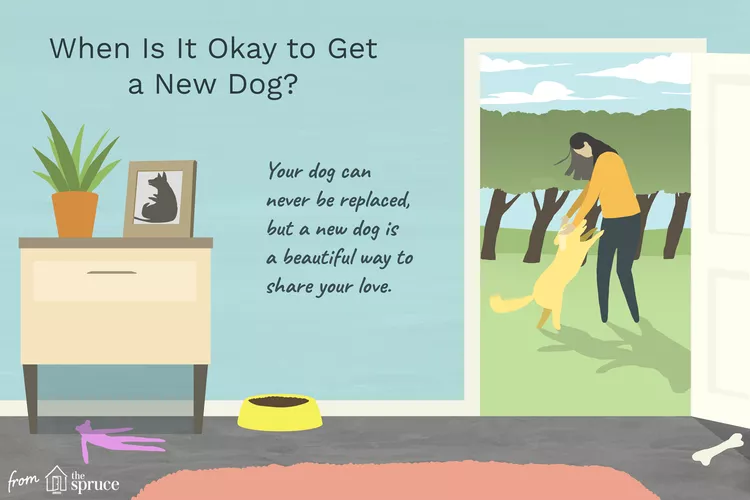
The death of a beloved pet is heartbreaking and the grief does not go away overnight. Many owners struggle with the decision to get a new dog. How long should you wait before getting your next dog? Will you ever be ready to share your life with another dog?
There is no way to say for certain when the time is right to get a new dog. This is a very individual decision that often happens organically. Some people only wait days to weeks, possibly because they cannot bear to go long without a canine companion. Others need several months to years before they are ready to bring a new dog into their lives. Some people even decide they no longer wish to have dogs.
The situation is different for everyone and there is no one right answer. However, there are some guidelines that might help you make the decision that's right for you.
First of all, take the time to experience your grief. It's normal to be sad, angry, or lonely for a while. It's also okay to feel relieved and sad at the same time, especially in cases when your recently deceased dog suffered from a long or serious illness.
Avoid trying to immediately fill the void with a new dog when you have not processed your feelings over the loss of your last dog. You might end up projecting negative feelings onto your new dog or having unreasonable expectations. Instead, wait until you feel a sense of peace about your previous dog's death. Yes, you may still be grieving. However, it's best to be at a place where you are processing your grief and it does not dominate your life.
Consider other people living in your home. Spouses, partners, significant others, children, roommates, other pets, and other family members should have a voice. Are they ready to welcome a new dog into the home? Are they still grieving?
The decision to get a new dog should be one you make as a group. Have household meetings to discuss what is on the minds of everyone in the home. Once you can all agree to get a new dog, you can then discuss details like what kind of dog to get and where to get the new dog. Choosing your new dog should also be a group process.
If you have any remaining pets, consider them before you add another dog to your home. Remember, that dogs grieve too (and so do other pets). Your dog or other pet may feel sad and lonely without his companion, but that doesn't mean a new dog will help. In some cases, bringing a new dog in the home before your dog is ready can cause quite a disruption.
Watch your remaining pets closely for the days to weeks following your previous dog's death. Look for subtle changes in personality, activity level and appetite. Make sure they are not showing any signs of illness. If you think your pet is feeling off, talk to your veterinarian. Anxiety and depression are common after the loss of a housemate in many animals and your vet may have some recommendations on how to help them heal. Once you are confident they are back to their normal selves, only then should you consider adding a new dog to your home. Once you get your new dog, be sure to introduce all pets gradually and carefully.
Try to get an idea of what your life is now like without your dog. Are there goals or plans that you put off because of the care your previous dog needed? Maybe now is the time to take that long vacation or sabbatical. Does your home need repairs or renovations? Perhaps it's a good time to revisit previous plans for going back to school, changing jobs, or relocating. It's better to make any lifestyle changes before adding a new dog to your home. If and when the time is right, you can find a dog that is right for your new lifestyle.
Think about the new set of responsibilities that will come with a new dog. It will take time to help your new dog adjust to a new environment. You will likely need to work on some training as well. Your new dog may need more exercise than you are used to, especially if your previous dog was a senior.
Because you likely had many years with your previous dog, his care may have become a matter of routine for you. A new dog will have a whole new set of needs, many of which may be unexpected. Therefore, you should make sure you are prepared to make lifestyle adjustments if necessary. It may even be a good idea to approach this as if you were getting a dog for the first time.
Once you feel that the time is right, you can begin the process of choosing the right dog. Avoid running out and bringing home the first dog you come across. Before you look for a new dog, determine the age, personality, energy level, and size of your ideal dog. Decide what factors are the most and least important to you.
Adopting a dog can be a wonderful idea. Many dogs in rescue groups have been living in foster homes. The foster owners can usually give you an idea of what to expect from each dog.
Your beloved dog can never be replaced, but a new dog can be a beautiful way to share the love in your heart. Some people find that the heartbreak of losing a dog was too difficult to ever go through again. However, most people realize that they want to continue sharing their lives with dogs. By opening your life up to a new dog in need of a home, you are honoring your dog's memory. The human-canine bond is a beautiful thing.

212 Hairless Cat Names For Your Beautifully Bald Feline
Discover the perfect name for your hairless cat with our list of over 200 creative and unique names. From quirky to classic, find a fitting choice for your beautifully bald feline companion.
8 Things Your Cat Loves
Just like humans, cats can have a long list of things they like. Find out what cats love so you can keep your cat happy and healthy.
How to Tell If a Kitten is a Boy or a Girl
If you're wondering whether your new kitten is a boy or a girl, here are three ways to help determine the sex of your cat.
8 Tips to Help Cats Enjoy Car Travel
Cats are creatures of habit, and they hate to travel. Learn tips to prepare them for travel in the car, whether going to the vet or on vacation.
Common Causes of Mucus in Dog Poop
Seeing mucus in your dog's poop can be concerning to a dog owner. Here are common causes and treatment of mucus in a dog's stool.
Is Shrimp Bad For Dogs?
Shrimp can be a healthy, nutritional food for people but can dogs eat them, too? What are the main concerns with feeding shrimp to your dog?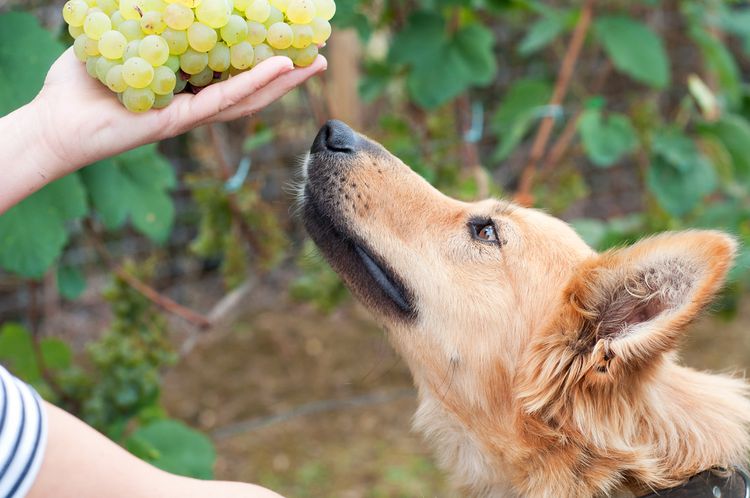
Can Dogs Eat Grapes?
Are grapes safe for dogs? Grapes and raisins can cause serious toxicity in dogs. Find out what to do if your dog eats grapes.
Maine Coon Cat: Breed Profile, Characteristics & Care
The Maine Coon cat is of the largest cat breeds in the world. These amiable, gentle cats make great companions. Learn about the Maine Coon cat breed's appearance, temperament, health, and care needs.
Selkirk Rex: Cat Breed Profile, Characteristics & Care
The Selkirk Rex is a charming cat with a tousled coat and a loving, laid-back personality. Learn about the Selkirk Rex breed.
How to Stop Your Cat From Chewing Electrical Cords
Cats are known to pounce and attack inanimate objects, like electrical cords. Learn how to prevent your cat from ambushing objects that may harm it.
What Do Cats Think About?
Have you ever wondered what cats think about? A number of studies have explored cat behavior and feline cognition, but there's still more to learn.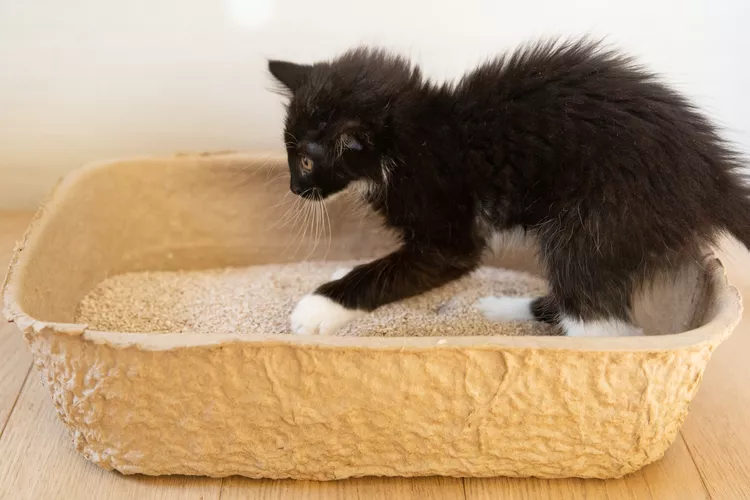
Training Your Kitten to Use the Litter Box
Bringing home a new kitten means they need to learn how to properly use a litter box. Discover how to successfully litter box train your kitten.
Why Do Cats Knead?
Kneading is a common behavior in cats of all ages. Learn why cats "make biscuits" and what it means for you, your cat, and all your blankets.
Dandie Dinmont Terrier: Dog Breed Characteristics & Care
Learn about the Dandie Dinmont Terrier, a silky dog breed with a signature puff of hair atop its head and a friendly, companionable personality.
Tibetan Mastiff: Dog Breed Characteristics & Care
Learn about the Tibetan mastiff, an ancient guardian dog breed. This breed is known for their massive stature, flowing mane, and protective personality.
4 Reasons Why Your Dog Licks Their Butt
Butt-licking in dogs can be a part of normal grooming, but excessive butt-licking is not normal. Read about the most common reasons for this behavior.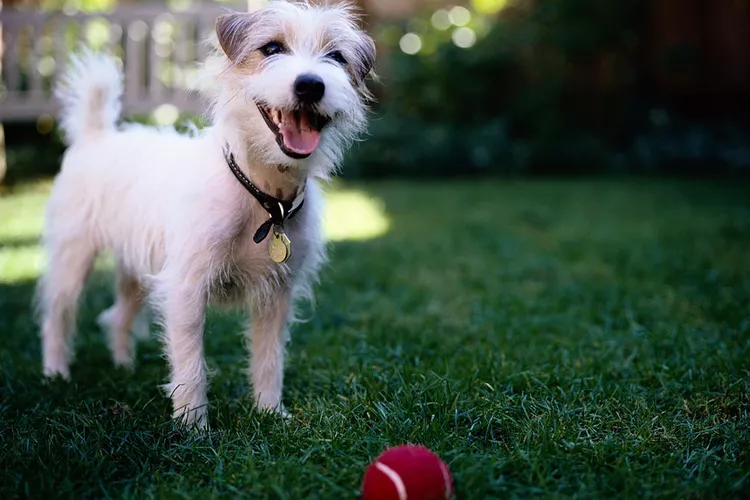
How to Teach Your Dog the "Leave It" Command
Training your dog the "leave it" command is a great way to instill self-control. Learn how to teach your dog to not pick things up from the ground.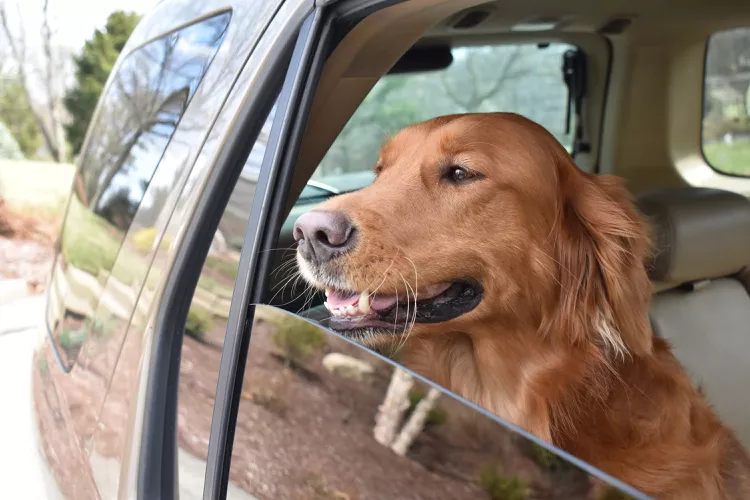
How to Solve Your Dog's Fear of Car Rides
Is your dog scared of car rides? This fear of riding in cars is common. Learn why your dog is scared of car rides and how to help conquer this fear.
Can Dogs Get Depression? How to Help Your Sad Dog
Can dogs get depression? Learn about the signs of depression in dogs and find out how to help your sad dog.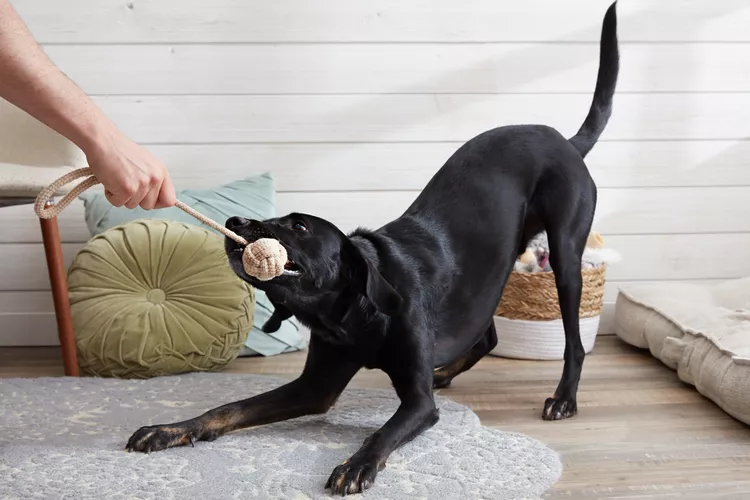
How to Play Tug of War With Your Dog
Many dogs love to play tug of war, and it's a healthy game that provides great exercise. Learn the best way to safely play tug of war with your dog.